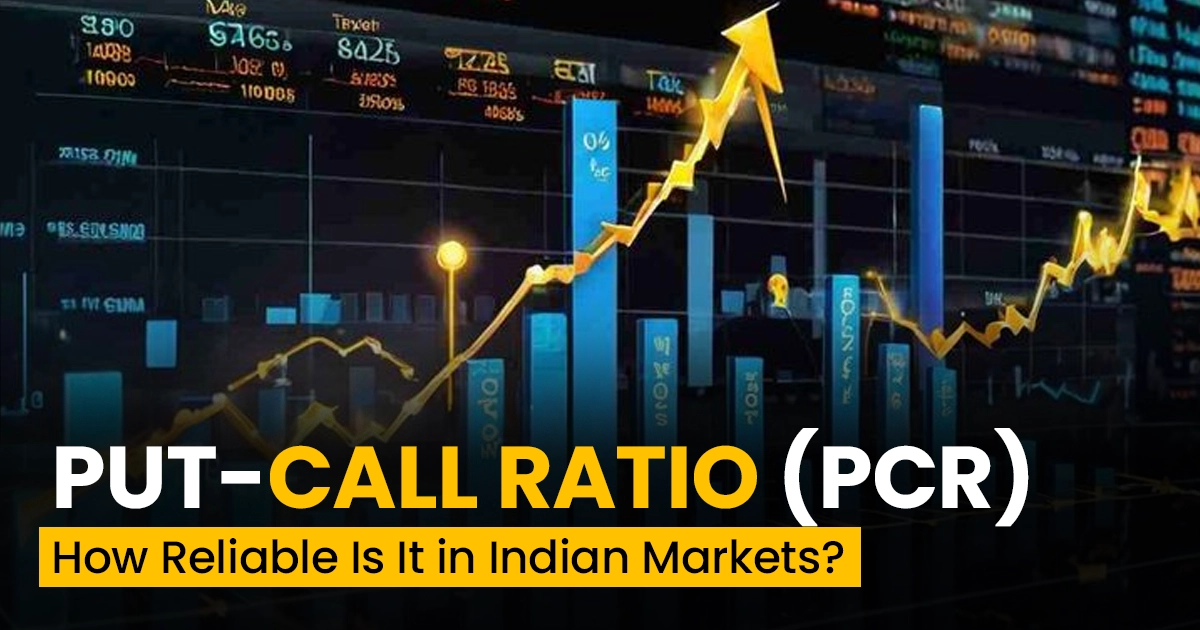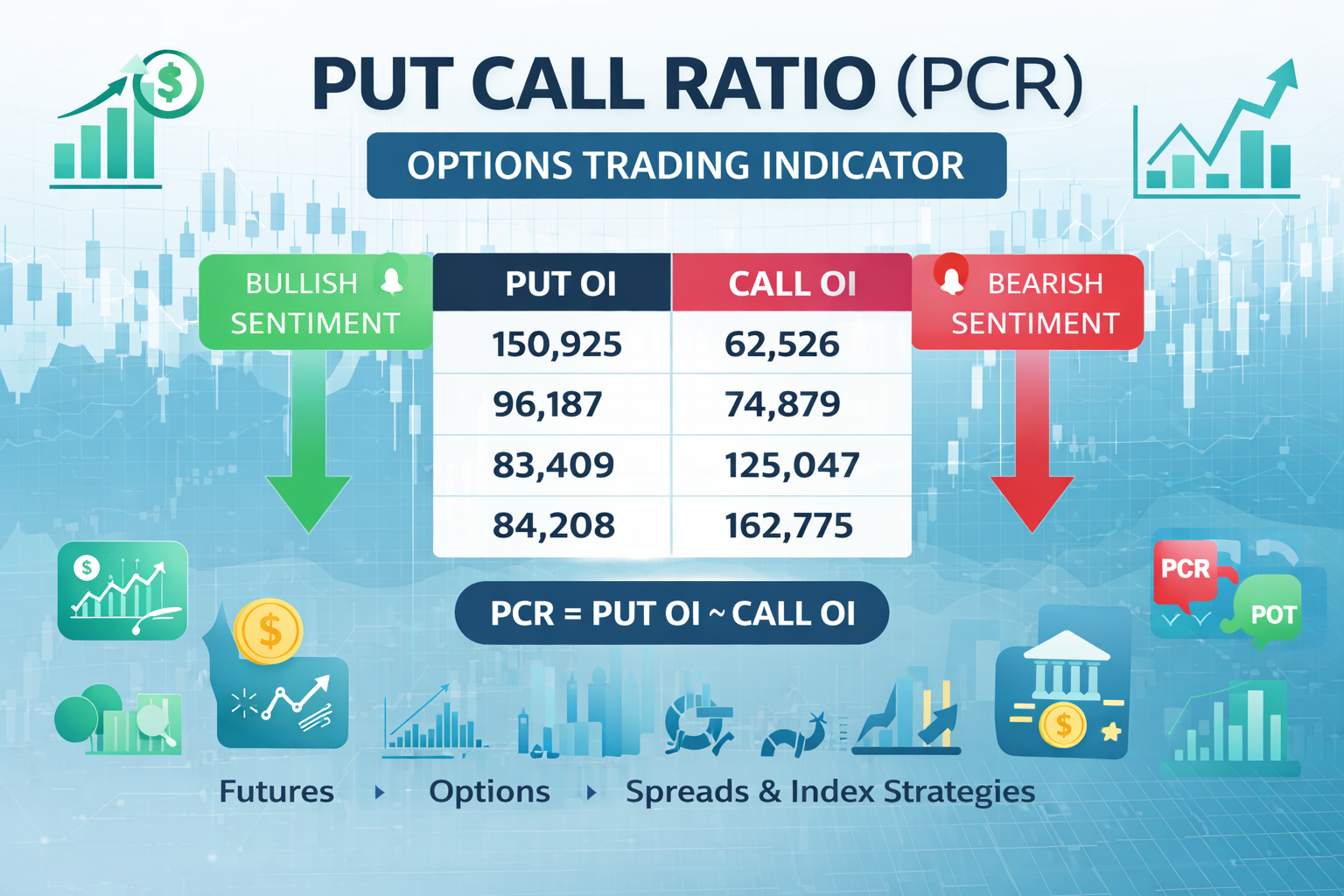Taxation on Derivative Trading in India: What Traders Need to Know
Derivative trading in India whether in equities, commodities, or currencies has gained a massive following from both individual and institutional investors. Nonetheless, where derivative trading is concerned, critical to any investor's understanding is the taxation framework applicable. The tax on derivatives is different and distinct from other equity investments, and a trader must be aware of these taxes to avoid penalties and optimize tax liabilities.
In this blog, we’ll break down the taxation of derivative trading in India, covering the types of taxes, how they are calculated, the distinction between futures and options, and some practical tips for managing your tax liabilities.
1. Understanding Derivative Trading and Taxation Framework
In India, derivatives usually mean futures and options contracts, which derive their value from an underlying asset like stocks, indices, or commodities. The key feature of derivatives is that they allow investors to take positions on the future price movements of these assets, although they don't own the underlying asset itself.
The tax classification in India has classified the derivative trading activity as a speculative one, and accordingly, the treatment of derivatives under taxation is quite different from normal stock trading or investment.
2. Tax Classification of Derivatives: Capital Gains vs. Business Income
The first step to understanding derivative taxation is to establish whether income from derivatives will be treated as either capital gains or business income. This classification will significantly affect how your profits (or losses) from derivative trading will be taxed.
Futures Contracts:
Earning from trading in stock futures is considered as business income and not capital gain. Futures trading would fall in the category of speculative transaction in the eyes of Indian tax laws even though the transaction includes the buying and selling of financial instruments.
Options Contracts:
Again, just like futures, options trading income is considered business income. If you are trading options (whether you wrote options or bought options), your gain will be business income. The only advantage is that when you exercise the option, the gain/loss that you will get will also be treated as business income.
However, tax treatment may vary for non-speculative options trading (i.e., options held for investment purposes, though this is rare in India) and could be classified under capital gains.
Commodity Derivatives:
The tax on commodity derivatives is the same as equity derivatives. Income from trading commodity futures or options on exchanges like the MCX (Multi Commodity Exchange) or NCDEX (National Commodity & Derivatives Exchange) is also treated as business income.
3. Tax Implications for Business Income from Derivative Trading
Since derivatives are typically classified as business income, the profits and losses are treated as part of the trader's total income and taxed accordingly under Income Tax Act, 1961. The tax rates depend on whether the trader is a professional trader or an individual investor:
a) Business Income:
1. Taxable as Business Income:
- All profits from derivative trading are considered business income and will be taxed at the relevant tax rates for individuals (either as a salaried taxpayer or under business profits).
- This income will be added to your total income and taxed at the progressive tax rates as applicable under the Income Tax slab. For FY 2023-24, these rates range from 0% to 30% depending on the income level.
2. Deductions:
Expenses for derivative trading can be deducted as business expenses. This could include brokerage fees, internet costs, subscription charges for research tools, and any other trading-related costs. Presumably, it decreases the taxable income from your derivative trading activity.
b) Presumptive Taxation under Section 44AD:
- If the total turnover from your business, including derivative trading, is less than Rs 2 crore for any fiscal year, you can make use of a presumptive taxation scheme under Section 44AD of the Income Tax Act. In this scheme, you are liable to declare 8% of your turnover as profits and that will be assessed as business income.
- However, this plan is commonly more suitable for traditional businesses and not ideal for active derivative traders, since the transactions are relatively complex.
4. Taxes on Capital Gains of Derivatives (Where Applicable)
Though derivatives are generally considered business income, there are some specific situations whereby the profits gained could be considered capital gains. Examples include:
- Long-term capital gains: In case you hold a derivative contract for more than 36 months (although in practice, derivatives are very rarely held for such long periods), gains resulting might be taxed as long-term capital gains. This is a very rare phenomenon because derivatives are mostly short-term instruments.
- Short-Term Capital Gains (STCG): In the event of derivative contracts held for less than 36 months, which is quite the standard, gains may be taxed as short-term capital gains although this will be subject to the holding period; in the case of derivatives, this classification is pretty unusual because they are not usually traded for long periods.
5. Taxation of Profits from Futures and Options Trading
Taxation on Futures Trading:
- Profits/Losses from trading in futures contracts are taxed as business income.
- Short-term capital gains (STCG) may be applicable in rare cases if derivatives are held for an extended period (over 36 months), but typically, these profits are classified as business income.
Options Trading Taxation:
- Profits from writing options (selling options) or buying options and exercising them will also be treated as business income and taxed accordingly.
- Writing options normally lead to short-term gains that are taxed as business income.
6. Losses from Derivative Trading and Their Treatment
Losses on derivative trading can be brought forward to subsequent years; however, rules on setting off losses vary depending on the classification of your income whether it is for capital gains or business income.
Set-Off of Losses from Derivative Trading:
1. Speculative Business Losses:
- Losses from derivatives trading are permissible to be carried forward and set off against other income of the same nature in the same year.
- Losses from Speculative Transactions (like derivatives) can only be set off against other speculative business incomes. They cannot be set off against non-speculative business incomes, like salary income.
2. Carrying Forward of Losses:
- In the case of derivative trading, if the losses are incurred and cannot be offset in the same year, then these losses can be carried forward for a period of up to 8 years.
- These can be set off against speculative business profit in subsequent years.
7. GST on Derivative Trading
In addition to income tax, GST is levied on the brokerage fee or commission paid by the brokers to execute derivatives. Currently, the rate of GST for financial services is 18%.
8. Key Takeaways for Derivative Traders in India
- Derivative trading income is treated as speculative income and is taxed as business income.
- Futures and options profits are taxable under the head 'income tax' at the prevailing income tax rates applicable, considering your total income.
- Expenses related to trading (such as brokerage, internet, and research) can be deducted from your income.
- Losses from derivative trading can be carried forward and set off against future speculative business profits.
- Understanding the right classification of your trading income is crucial to ensure that you’re filing taxes correctly.
- GST applies to brokerage services for derivative trades.
Conclusion
Taxation on derivative trading in India might look a little confusing at first, but if equipped with the right knowledge, it is quite manageable. Be it equity derivative trading commodity trading or currency derivatives, always keep a list of your transactions and expenses, classify your income correctly, and file your returns appropriately. If there is any doubt about specific aspects of derivative taxation, you should consult a tax professional or financial advisor to ensure proper compliance and optimal tax planning.
Taxation rules would allow the understanding of how to effectively minimize tax liabilities while staying compliant with Indian tax laws.









